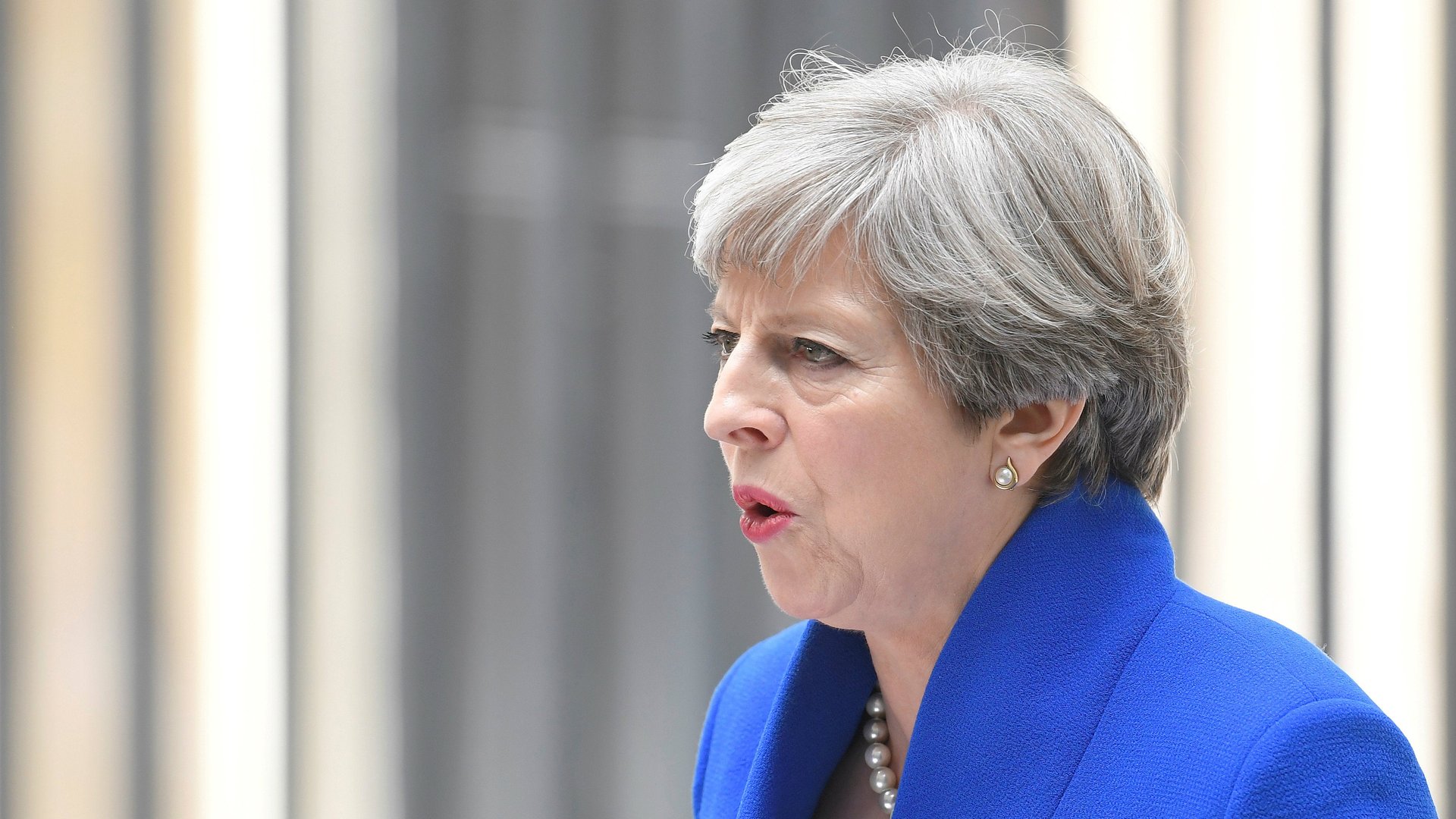The weak and wobbly economy inherited by the UK’s weak and wobbly new government
Last week, Brits went to the polls for the third time in two years and, once again, defied expectations.


Last week, Brits went to the polls for the third time in two years and, once again, defied expectations.
Prime minister Theresa May took a gamble with the governing Conservative Party’s parliamentary majority by calling a snap election and lost the bet. Instead of May’s promise of “strong and stable leadership,” the UK now has a hung parliament. May is sticking around and trying to form a minority government, which is looking weaker, more beholden to compromise, and significantly more unstable than it was just a week ago. And she has to lead the UK out of the European Union as smoothly as possible.
The economy May has taken on is very different to the one her predecessor won just two years ago in the last election. While 2016’s shock Brexit vote didn’t cause economic damage last year, cracks are beginning to show just as negotiations with the EU are about to begin. And there are many pressing questions on issues facing the economy on everyone’s mind, from Downing Street to investors to local workers.
Will the pound recover anytime soon?
Since the last general election, the British pound has lost 18% of its value against the US dollar. Almost all of this is a result of the Brexit vote in June 2016.
Already the economic pain of this currency free fall is being felt as it pushes up inflation, forcing higher prices on everything from food to electric goods (and, most distressingly, wine). A stronger pound would help ease this inflation but investors are unlikely to start supporting the currency again unless the Brexit negotiations go smoothly. Bank strategists say they need hard evidence that the tone on Brexit is softening for the pound to strengthen.
How much higher can the stock market go?
Like other major stock markets, the UK’s FTSE 100 is on a tear. Earlier this month, the index reached a record high—but this isn’t a sign of optimism from investors in the UK economy. Rather, this is a direction consequence of the falling pound. Three-quarters of the revenues in the FTSE 100 come from overseas, so a weaker currency increases the value of these foreign earnings. This relationship could come undone, however, if Brexit interferes with ability of the largest UK’s companies to operate abroad.
When will the cost of borrowing rise again?
Since the Brexit referendum, the UK central bank cut official interest rates to 0.25%—the lowest on record—and revived its bond-buying program. This sent yields on UK bonds to new lows. First, the bad news: almost a decade after the financial crisis, the UK is still enacting emergency levels of monetary stimulus.
But there are benefits to low interest rates, namely new mortgages are likely to have lower rates and it’s cheaper for the UK to borrow on international financial markets—especially important given the UK is currently forecast to borrow almost £160 billion over the next five years.
Can the unemployment rate actually go much lower?
The UK unemployment rate is 4.6%—the lowest since 1975. While the Conservatives can add this to their list of achievement, the simultaneous rise in people on short-term contracts with none of the legal protections of full-time work—almost 1 million people—has been controversial. And despite more people in employment, the UK’s productivity growth still lags far behind other major economies.
Will real wages stop falling?
The worst news of it all: After just two years of above-inflation wage growth, Brits are now facing what is effectively a pay cut. Inflation rose quickly after the Brexit-induced pound drop, but wage growth has continued to be meager. This wage squeeze will worsen the UK’s economic prospects as consumer spending has been the bedrock of the nation’s economic growth.
Can the UK economy be rescued from the bottom of the league table?
After being one of the fastest-growing economies in the G7, the UK now has the slowest economic growth in the group. Negotiations to leave the EU haven’t even started but the strain on the economy is becoming apparent. Theresa May will have to take on Brexit in weakened circumstances just as the economy is slowing down.
Will house-price growth keep slowing down?
Last but not least, growth in UK house prices has finally started to slow down. Good news for first-time buyers but a lot of the public’s wealth is tied up in their property. If this slowdown continues, May will face a vast majority of angry voters. Along with all the difficulties of enacting policy with a minority government.